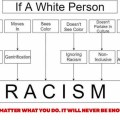Liberals always want to use examples of how successful the gun laws are in other countries to show how gun control can work here. Their favorite is usually Australia, where I might point out seven people were killed in a mass shooting only 17 days ago, but two writers for NBC News want a little climate change and are moving to a much chillier spot on the globe for another example. They want us to be like Iceland.
NBC News
Iceland is a gun-loving country with no shooting murders since 2007
While the remote island is the size of Kentucky and has a population similar to St. Louis, Missouri, Icelanders say the U.S. can learn from their gun laws.
REYKJAVIK, Iceland — Like many of his countrymen, Olaf Garðar Garðarsson is eager to get his hands on a rifle.
But he can’t just walk into a store and buy one. Instead, he is sitting through a mandatory four-hour lecture on the history and physics of the firearm.
This is Iceland — the gun-loving nation that hasn’t experienced a gun-related murder since 2007.
“For us, it would be really strange if you could get a license to buy a gun and you had no idea how to handle it,” says Garðarsson, 28, a mechanical engineer. “I would find it very odd if [a gun owner] had never even learned which is the pointy end and which is the trigger end.”
The pointy end? Technical terms, I guess. I seriously doubt that any gun owner doesn’t no which end of a firearm is which, and neither end is pointy unless you’ve got a bayonet attached to it.
Iceland is a sparsely populated island in the northern Atlantic. Its tiny population of some 330,000 live on a landmass around the size of Kentucky.
St. Louis, Missouri, which has a population slightly smaller than Iceland’s, had 193 homicides linked to firearms last year.
So you want to use St. Louis as a comparison? Let’s do that. Here’s an interesting statistic on those St. Louis homicides from 2017 from the St. Louis Post Dispatch:
I’m not going to say anything here because I don’t want to be accused of racism, but does anything jump out at you in that graphic? I don’t know, but maybe guns and the availability of them aren’t the problem here. Now let’s look at Iceland’s demographics. Iceland is a “homogeneous mixture of descendants of Norse and Celts 94%, population of foreign origin 6%,” and most of those immigrants are from Poland. In other words, Iceland is almost, if not entirely white, guns are widely available, yet no gun crime. Weird. But, I’ll let you draw your own conclusions about why that might be. I’m just throwing the numbers out there.
Icelanders believe the rigorous gun laws on this small, remote volcanic rock can offer lessons to the United States.
“The system here works,” said Gunnar Rúnar Sveinbjörnsson, a flip-flop-wearing spokesman for Reykjavik’s police department. “We would be glad to help.”
Like many outside the U.S., Sveinbjörnsson struggles to comprehend the extent of American gun violence.
It’s different in the U.S. partially due to the fact that there is a small percentage of our population that you don’t have in Iceland, but is responsible for a majority of the homicides committed here. Here’s the FBI homicide statistics from 2015 by race:
And again, I’m not being racist, I’m merely pointing to facts.
“It’s just madness,” he says. “We just cannot understand why this isn’t stopped and why something isn’t being done.”
No other country in the developed world comes close to the U.S. when it comes to gun ownership, gun homicides, mass shootings and police killings.
After the February mass shooting at Marjory Stoneman Douglas High School in Parkland, Florida, the “Enough is Enough” movement led to laws tightening gun restrictions in the state, including raising the legal age to buy a gun to 21. But that has not been repeated in other states nor on a national level.
In many places in the U.S., it’s still possible to buy a semi-automatic rifle in minutes with only patchy background checks.
Patchy? Every background check goes through the FBI and if the buyer is not qualified to purchase the gun, he or she is denied. There’s nothing “patchy” about it.
Gun control advocates in the U.S. sometimes point to countries such as Japan, where strict laws and a pacifist culture mean there are very few guns, and as a result very few gun deaths.
Few gun deaths but lots of suicide. These wonderful pacifists just love to kill themselves, and do so at a greater rate than in the United States. 15.4 per 100,000 people compared to 12.6. So no, let’s not be like them.
But guns are everywhere in Iceland, about one for every three people, and many here are staunch advocates of their right to own a firearm.
“There’s nothing wrong with the gun,” said Jóhann Vilhjálmsson, a gunsmith in Reykjavik, echoing a favorite argument of the National Rifle Association. “The gun kills nothing, you know? It’s the person who is holding onto the gun.”
Well, you got at least one thing right.
The last gun killing here was 11 years ago, and there have only been four in the past two decades, according to GunPolicy.org, a project run by Australia’s University of Sydney.
It would be misleading to suggest that the model in Iceland — a small country where income inequality is low — could be seamlessly transposed onto the U.S.
What the hell does income inequality have to do with the price of tea in China? Or more appropriately, the price of smoked sheep’s head in Iceland. Yes, they eat that there.
Most guns here are used for hunting or competitive shooting. Crime of any nature is so infrequent that few if anyone argues that they need to own a weapon for self-defense.
Yeah, well again this isn’t Iceland. It’s easy to make an argument here for needing a gun for self-defense. And “need” aside, it’s our right as Americans to own one for whatever reason.
“The system in the U.S. is so different to the one we have here,” says Sveinbjörnsson, the police spokesman.
But what’s clear is how seriously all Icelanders take the responsibility that comes with owning a deadly weapon.
Don’t be stupid. So do all responsible gun owners in the United States. It’s the criminals you have to worry about.
Now check out all the crap they have to go through to get a gun.
That’s why Garðarsson, the mechanical engineer and hopeful gun-owner, is currently sitting in a Reykjavik hotel conference room learning about the ins and outs of his weapon of choice.
He came here with his girlfriend, Jóhanna Einarsdóttir, 26, a teacher who also wants a gun. There are about three dozen others in attendance, all listening intently to the seminar covering firearm history, physics, laws, hunting and safety.
This is only one step in a meticulously regulated journey.
Candidates are examined by a doctor who checks they are in good physical and mental health.
They have a meeting with the chief of police, who asks them why they want to own a gun and runs a background check to make sure they have no criminal record.
Then comes the lecture, followed by a written test the next day that they have to pass with a grade of 75 percent or higher.
The final part is a day-long practice session at a shooting range outside the capital. Here, against the backdrop of snow-capped mountains, they blast at bright-orange targets fired into the sky by a machine.
“It feels like somebody cares that you’re getting a gun and what you’re going to do with the gun,” Garðarsson says at his apartment on the outskirts of Reykjavik. “So you’re not going to buy a gun to do stupid things.”
If they pass, he and his girlfriend will have been studying and preparing for around 13 months.
That’s all just really swell. But did you forget that in the United States we have this little thing called the 2nd Amendment? It says our right to keep and bear arms shall not be infringed. Infringement means things like some liberal doctor with a personal anti-gun agenda examining me and declaring me physically or mentally unfit to own a gun. Or a chief of police asking me why I want to own a gun and he decides that my needs aren’t good enough for him to fulfill my request.
And that’s just for a small rifle or a pump-action shotgun. Owning a handgun, for example, can take around three to four years, and semi-automatic rifles are all but banned.
More infringement. That’s not gonna fly here.
And like many countries in Europe, most police here are unarmed.
Only specialist units, like the Viking Squad, Iceland’s version of a SWAT team, can carry guns and even then, they are kept in locked boxes that require senior approval to open.
Since the Icelandic police was established in 1803, its officers have only shot and killed one person. This was in 2013, and afterward the police chief, Haraldur Johannessen, said he was “deeply saddened” and apologized to the victim’s family.
So the authors of this article not only want to disarm us but disarm our police as well? If you think there’s a crime problem now, do you have any idea how much worse it would be if no one, citizens or police, could defend themselves? Because guess what? Criminals, and there are plenty of them, would STILL HAVE GUNS.
Iceland is part of NATO but has no standing army. From this perspective, the idea of allowing ordinary people to buy military-grade weapons such as the infamous AR-15 seems “crazy, absolutely crazy,” according to Icelandic lawyer Ívar Pálsson.
An AR-15 is NOT a military grade weapon nor is it “infamous.” The ones I have owned or own have all behaved quite nicely. They don’t cuss, have clean criminal records, always do what I ask of them, and have never killed anyone. To the authors of this article, please look back at what you wrote about your Icelandic buddy saying “it’s not the gun, it’s the person.” You seemed to agree with him there or at least didn’t argue his point.
“When you have an automatic gun in your home, anybody can access it, your children or anyone else,” he says.
For all the gun education you people claim to have about firearms, it sure doesn’t seem like you retained any of it. It’s not an automatic gun, it’s a semi-automatic rifle. Secondly, if you keep it properly secured when you’re not around it, no one can access it. But all that aside, can’t you say exactly the same thing about your rifle or shotgun? Why is an AR-15 any different?
Pálsson is responsible for giving one of the lectures that leads up to the gun exam. Vilhjálmsson, the city gunsmith, gives another, as well as the tests at the shooting range. The entire process is administered by the Environment Agency of Iceland.
Like his fellow classmates, Garðarsson now has to wait to see if he has passed. If not, it might be annoying to hit the books again but he believes Iceland should never consider adopting a more American-style regime.
“That people can go into a store and buy a gun, it’s ridiculous for me,” he says. “If something snaps in his head then he’s able to do it in just one hour — go to a store, buy a gun, go to a guy he’s angry at and shoot him.”
Or something could snap inside one of your Icelandic domes and, if you already own a gun you can just pick it up and use it for the same purpose. Don’t own one? Steal it from your neighbor. So really, what’s the difference?
I’m glad everything is working out so well for you in your little frosty paradise. If you’re good with the way things are there, fine. But don’t try suggesting that your system is going to work here because it won’t. This isn’t Iceland. The problems we have here are much different. I think I’ve pointed that out. We’ll keep our guns and our 2nd Amendment rights, thank you.
Originally published at Fleeting Freedom on May 28, 2018.




